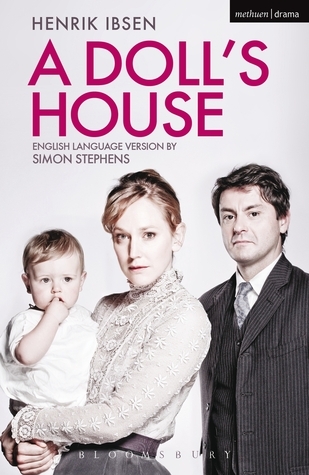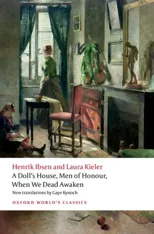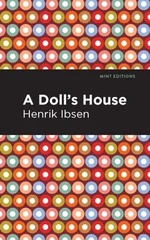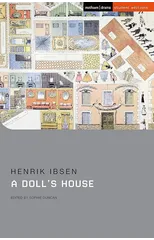A Doll's House
(Autor) Henrik Ibsen'I think I'm a human being before anything else. I don't care what other people say. I don't care what people write in books. I need to think for myself.' Henrik Ibsen's A Doll's House premiered in 1879 in Copenhagen, the second in a series of realist plays by Ibsen, and immediately provoked controversy with its apparently feminist message and exposure of the hypocrisy of Victorian middle-class marriage. In Ibsen's play, Nora Helmer has secretly (and deceptively) borrowed a large sum of money to pay for her husband, Torvald, to recover from illness on a sabbatical in Italy. Torvald's perception of Nora is of a silly, naive spendthrift, so it is only when the truth begins to emerge, and Torvald appreciates the initiative behind his wife, that unmendable cracks appear in their marriage. This compelling new version of Ibsen's masterpiece by playwright Simon Stephens premiered at the Young Vic Theatre, London, on 29 June 2012. It was updated with minor changes in 2013.
Henrik Ibsen
Henrik Ibsen was a Norwegian playwright and poet known for his groundbreaking contributions to modern drama. His works often focused on social issues and the complexities of human relationships. Some of his most notable works include "A Doll's House," "Hedda Gabler," and "Ghosts." Ibsen is credited with revolutionizing the theatrical form by introducing psychological realism and exploring taboo subjects such as women's rights and societal expectations. His plays have had a lasting impact on the genre of realism and continue to be performed and studied worldwide. "A Doll's House" is perhaps his most famous work, sparking controversy and debate with its portrayal of a woman's struggle for independence and self-fulfillment. Henrik Ibsen's legacy as a playwright remains influential and enduring in the world of literature.












